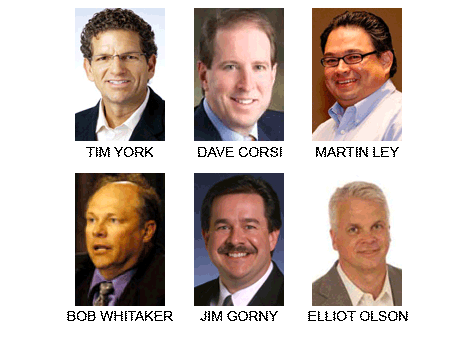One of the workshops at the PMA Convention in New Orleans was Buyers and Sellers — Moving to a Food Safety Culture? The session was moderated by Dr. Jim Gorny, Vice President of Science & Technology for the Produce Marketing Association and featured a substantial presentation by Dr. Bob Whitaker, Chief Science & Technology Officer, Produce Marketing Association. There was also a high profile respondent panel that included Tim York, President of Markon Group, Dave Corsi, Vice President Produce, Wegmans Food Markets, Martin Ley, President of Fresh Evolution LLC, and Elliot Olson, an attorney active in food safety litigation at Olsen & Pritzger.

We have written a lot about food safety, and we highlighted the buyer-led food safety initiative, which Tim and Dave spearheaded. The Salmonella St. Paul Outbreak was really where Martin Ley became prominent in food safety, and we have often discussed the legal issues around food safety. All in all, it was a very good session and these are mostly food safety all stars.
Yet it is also the case that it has become a truism that one needs a food safety culture to be optimal in food safety and, in the end, we felt the industry needs to push the conversation to the next level, specifically to compensation issues.
In his presentation, Bob Whitaker emphasized the point that food safety usually has to be top-down. If the CEO doesn’t buy in, it’s hard to make it happen.
This is certainly true, and in the extreme, if the CEO runs around the plant screaming, “(Expletive deleted) food safety! You are all getting fired if we don’t meet volume targets this month!” the likelihood of a strong and effective food safety program is significantly reduced.
In 2013, most CEOs are a little too savvy to run around that way. So what exactly does it mean for a CEO to show he is committed to food safety?
Obviously, speaking consistently in favor of food safety as a top priority is key. Also consistently allowing funding and staffing for food safety projects is important, and backing up the food safety executives when they say we can’t buy from someone or ship something is important as well.
The Number One way, however, that any CEO communicates to the staff is through compensation. If the speech is that the top priority is food safety but the compensation is based on hitting a production or sales target, then what the CEO is communicating sotto voce is that ”although I have to say food safety is our top priority for public relations and liability reasons, my actual top priority is meeting sales targets.”
As we mentioned here, it was Karen Caplan, President at Frieda’s, who was willing to be the one who noted that the emperor had no clothes when, at an industry meeting in which key retailers opined on their deep commitment to food safety, she asked the same retailers how they had changed their Key Performance Indicators (KPIs) in light of this deep commitment. The answer was that nobody had.
It is not easy to do this. Paying people based on producing profits is easy because it is self-funding; paying based on achieving food safety criteria may actually cost money.
We theorized that the whole situation with Sysco and San Francisco — which we wrote about in a piece titled, The Rogue Operation At Sysco Of San Francisco Raises The Question: How Can The Industry Use Compensation To Incent For Food Safety? — can best be understood as a consequence of compensation policies. That lots of people made the decision not to speak up, even in a company deeply committed to food safety, meant that they did not believe their personal financial interests would be enhanced by doing so.
Some people have begun the process. After the Spinach Crisis, we began a series of interviews with foodservice operators since they had a reputation as being more advanced on food safety than retailers. In one piece titled, Pundit’s Pulse Of The Industry: Cheesecake Factory’s Kix McGinnis Nystron Everclean Services’ Jack McShane, we identified that Cheesecake Factory had begun basing a portion of its store manager’s bonuses on audit scores and, low and behold, stores quickly started doing much better on audits.
There are many paths to be sure, but the industry is mature enough now to move to the next step. Yes, implement a food safety culture. And to do that you need to change KPIs and compensation policies to incent people to make the choices top management really wants them to make. If the search for food safety is sincere, that needs to be reflected in compensation.






